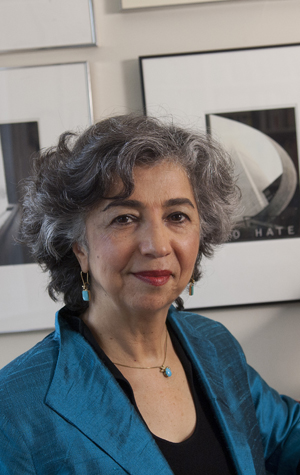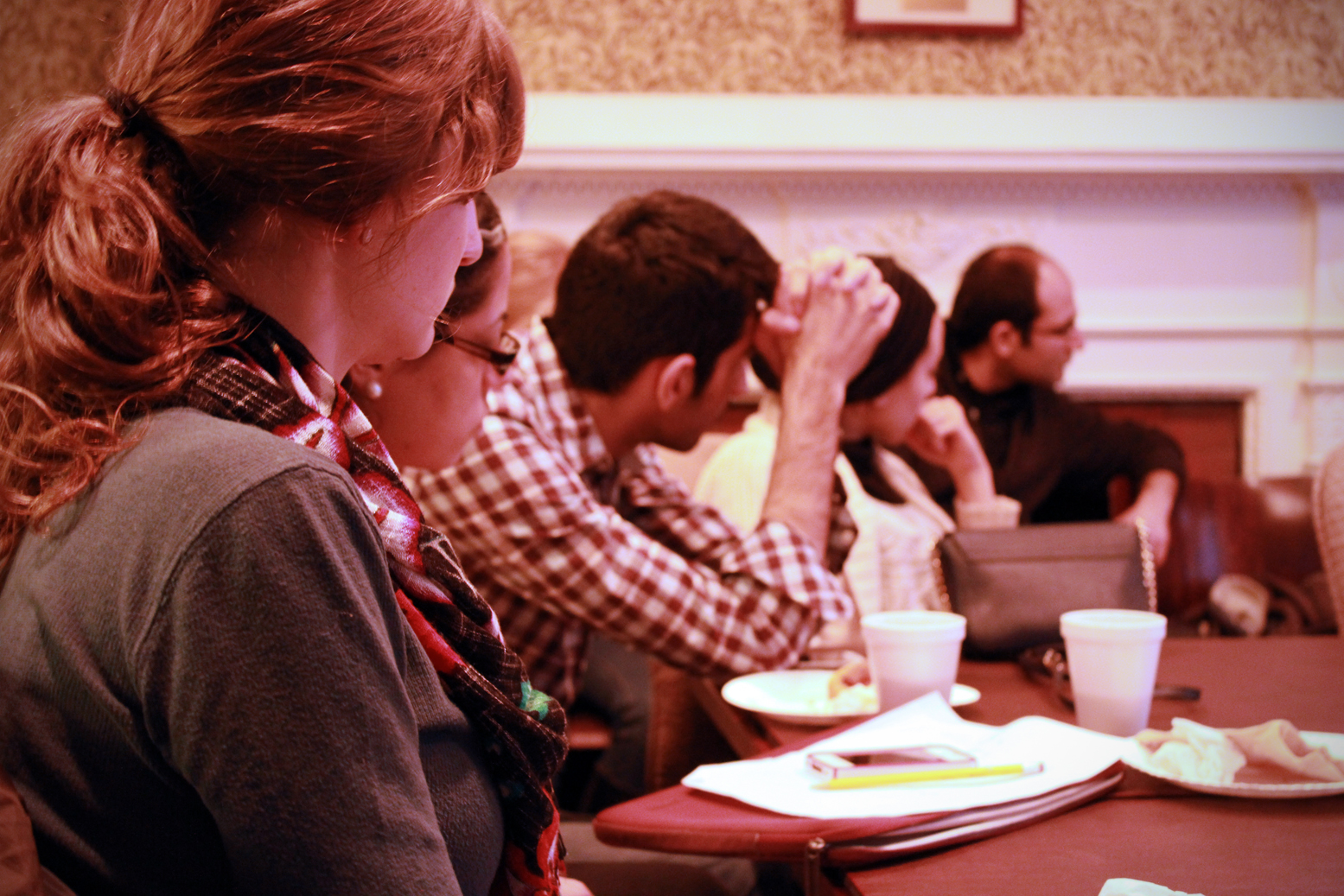
Just as the lights in the Elits Conference Room were turned out, in rushed Associate Professor Shahla Haeri, director of the Women’s Studies Program here at Boston University. Dr. Haeri was also the director of the film about to be shown, titled Mrs. President, which focused on the underrepresentation of professional middle to upper middle class Muslim women in the media. Dr. Haeri began with a sort of preface to the film, in her own words.
Before Dr. Haeri traveled to Iran in 2001, she had heard that one brave woman had nominated herself for president and anticipated wide coverage of such a newsworthy event. What she was surprised to find was that there were actually 47 brave women who had nominated themselves for the position, and yet almost nobody paid attention. Dr. Haeri enlisted the help of a prominent magazine editor she knew to help her track down these women, and was able to locate six of them by contacting them over the phone. After interviewing them, Haeri was left with over seventeen hours of raw footage that she documented on her handheld camera.
Considering she’d had no intention of gathering such lengthy and substantial material, this was both daunting and exciting for her. This footage had a message to deliver and quite a few stories to tell, so Dr. Haeri dove headfirst into a project that would result in the film those in the conference room were about to view.
For safety reasons, Dr. Haeri filmed from the safety of her car while traveling around Iran. However, for the interview sequences, which took up most of the film, she found alternate safe locations to document her findings such as the subjects’ living rooms or workplaces. The conversational scenes were intimate, with only the women, Haeri, and her camera present.
Immediately preceding the first interview sequence was a short scene of a magician in a public town square attempting to move a coin with the energy from his mind. Relating to this scene was a quote from the first interview subject, who proclaimed that “we humans have a mission to move forward.” Much like the magician, these women were trying to move not only themselves forward, but the thought process and social norms of the communities in which they lived.
In a later scene, following a brief outline of a term in the Iranian constitution that translates literally to “he” but is regarded widely as simply referring to a “political elite,” Haeri asked the subject, “Are women really incapable of becoming Ayatollahs?” The woman responded, “L’adri. I don’t know,” before laughing briefly at what seems, to her, to be a question that should not have to be asked. Another woman acknowledged that perhaps the reason so many are still reluctant to accept women as presidential figures is due to the concept that “woman is God’s beauty. Man is His glory.”
At the end of the film, in a somewhat more lighthearted scene, Haeri includes one woman’s husband next to her as he voices his support should his wife ever decide to nominate herself for presidential election again in the future.

